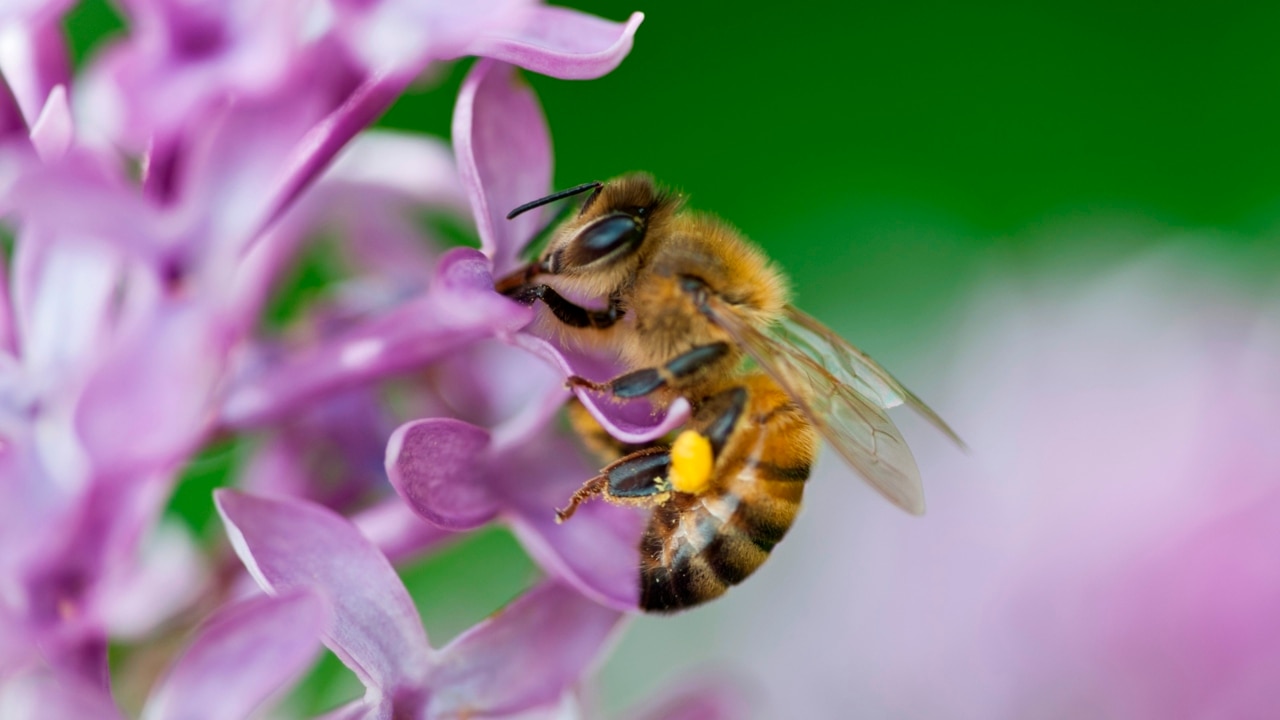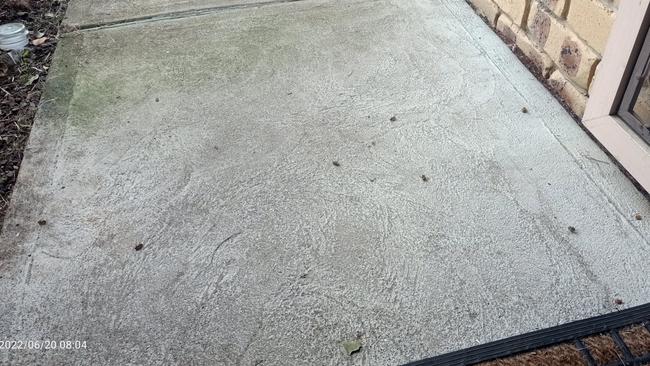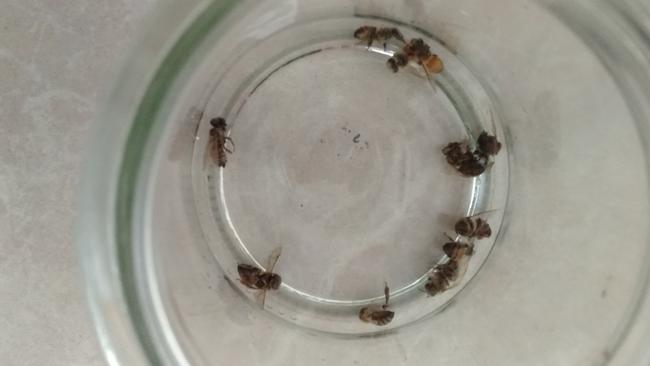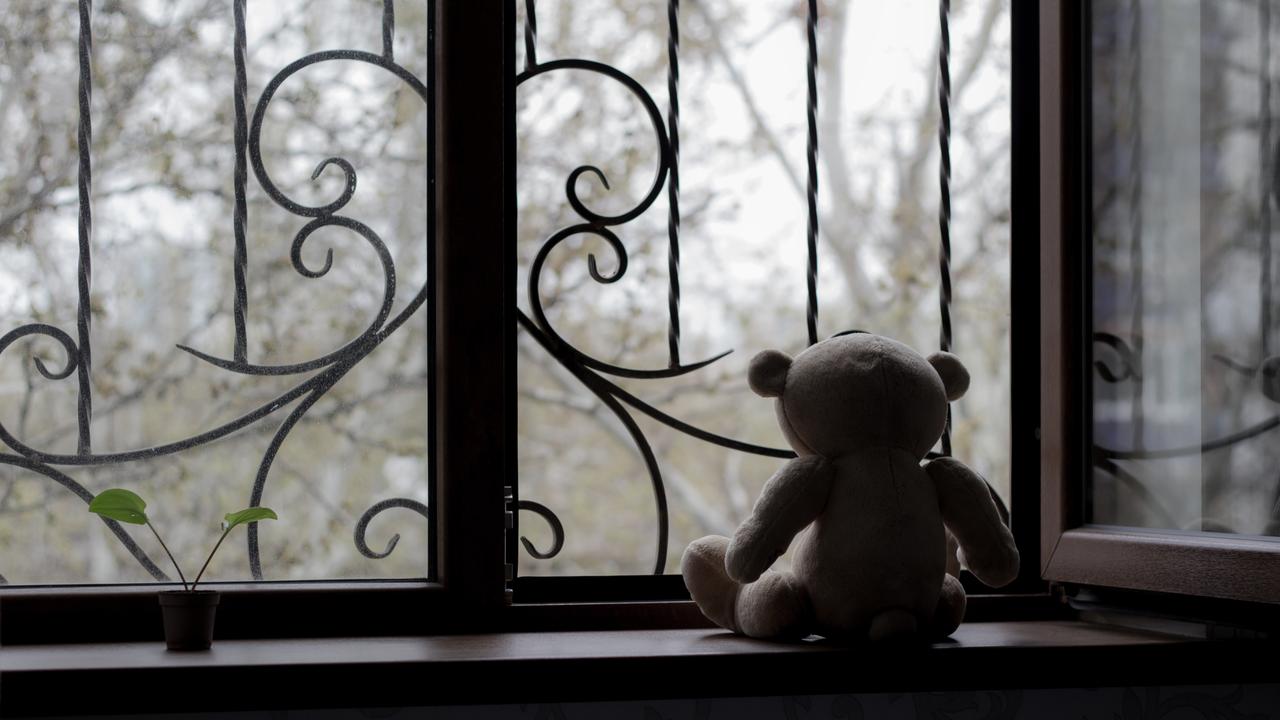‘They come here to perish’: Bizarre influx of dead bees in Redbank Plains sparks environmental concerns
Redbank Plains’ local bee population may be at risk, according to several residents who are searching for the cause of an unexpected epidemic of dying bees.

Ipswich
Don't miss out on the headlines from Ipswich. Followed categories will be added to My News.
Redbank Plains residents have reported a bizarre influx of dying bees over the last few months — and are questioning whether a local pollutant could be the cause.
Redbank Plains local Leanne Joy Horsten often spends her mornings giving sugar water to bees in her garden, having noticed the bees dying off around February or March this year.
“I would just start seeing bees … and they’d just be dead, or some still struggling,” she said.
Ms Horsten said she did not think too much of it at first, but then it became a “regular thing”.
“It just kept happening on a daily occurrence … Some days there were like 10, 20”.

In early July, Ms Horsten posted about her observations in her local community Facebook group, and a number of other residents responded with similar experiences.
One resident commented “We have dead bees at our house almost every day. It’s bizarre, like they come here to perish. It’s happened for at least the last year”.
“I’ve had a couple of large deaths in my hives which I suspect is a systemic pesticide,” said another.
Some raised concern of varroa mites – which have increasingly plagued the New South Wales bee population – while others suggested ‘The Stench’ from Cleanaway Landfill or a similar pollutant could be behind the bizarre behaviour.
A spokesman for the Department of Environment and science said there was no evidence to suggest any link between bee deaths and Cleanaway’s operations, nor in relation to a pollution event in the area.
Ms Horsten said she thought pesticides – which numerous studies have shown can have a significant impact on local bee populations – could be the cause, saying the bees she observed would “slow down, can’t seem to fly, then just die”.
She said many of the other residents who she had spoken to lived within a few minutes of her — close to the Town Square Redbank Plains shopping centre – and believes there may be a linked cause.
When it came to identifying which cause, however, Ms Horsten said “there’s so many contributing factors around this area that I think it’s hard to pin down”.

Since she moved to Redbank Plains last May, she said she has had a “constant cough” and has noticed her vegetables struggling to grow more in the area.
“It could be things in the soil, it could be whatever, but unless you eliminate something, you’re not going to find another answer,” she said.
Ms Horsten said she notified multiple government departments including the Department of Agriculture and Fisheries and Department of Environment and science, but has made little progress with them at this stage to pinpoint any cause.
Ms Horsten said she had collected around 200 bees, hoping that they can be tested.
“I think it’s important to get answers in case it is a big issue,” she said.

A spokesman for Biosecurity Queensland said bees are susceptible to sudden, natural death due to a range of factors, including cold weather, lack of food resources and endemic diseases.
“In early July 2022, Biosecurity Queensland was made aware by a member of the public of the death of a small number of bees in the Redbank Plains area.
“As specimens were not provided, it was not possible to determine the cause of death.”
Members of the public finding significant numbers of dead bees can call Biosecurity Queensland on 13 25 23.




